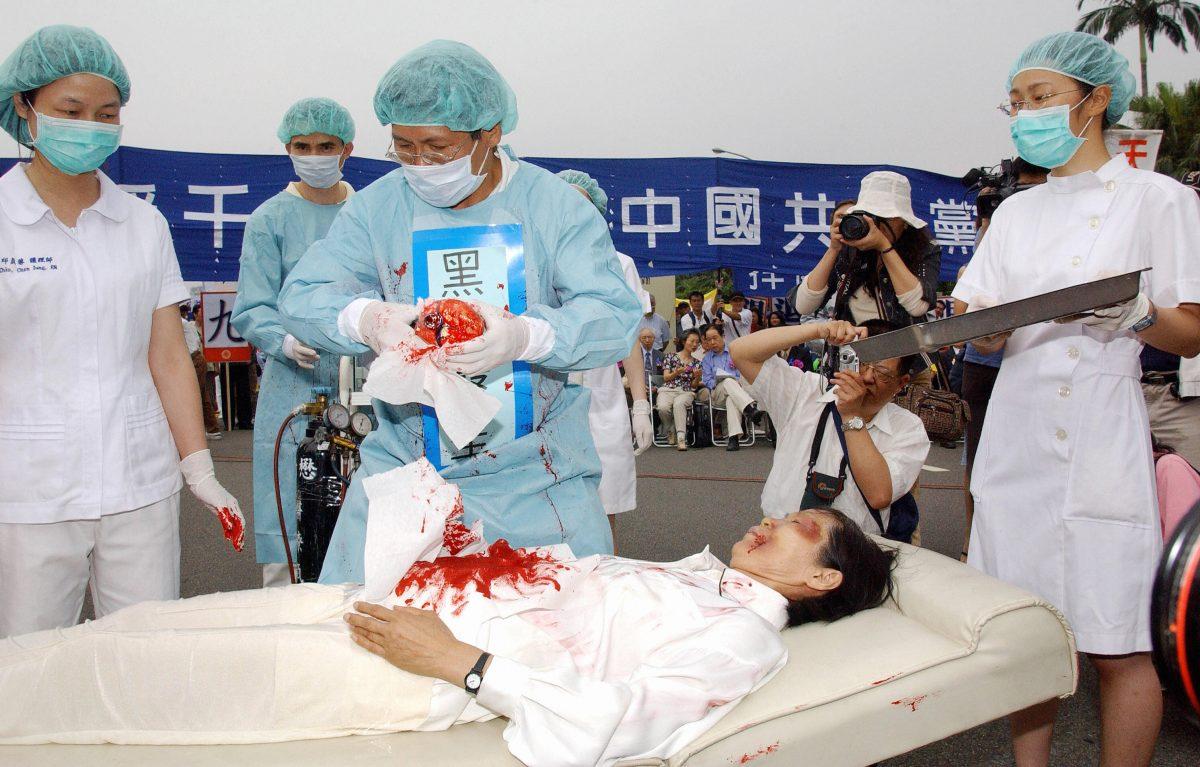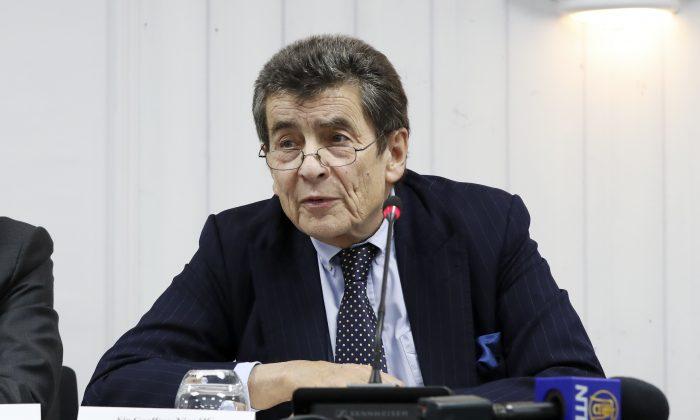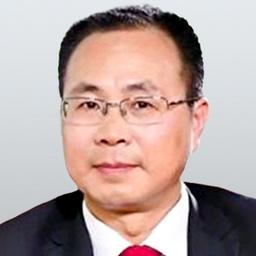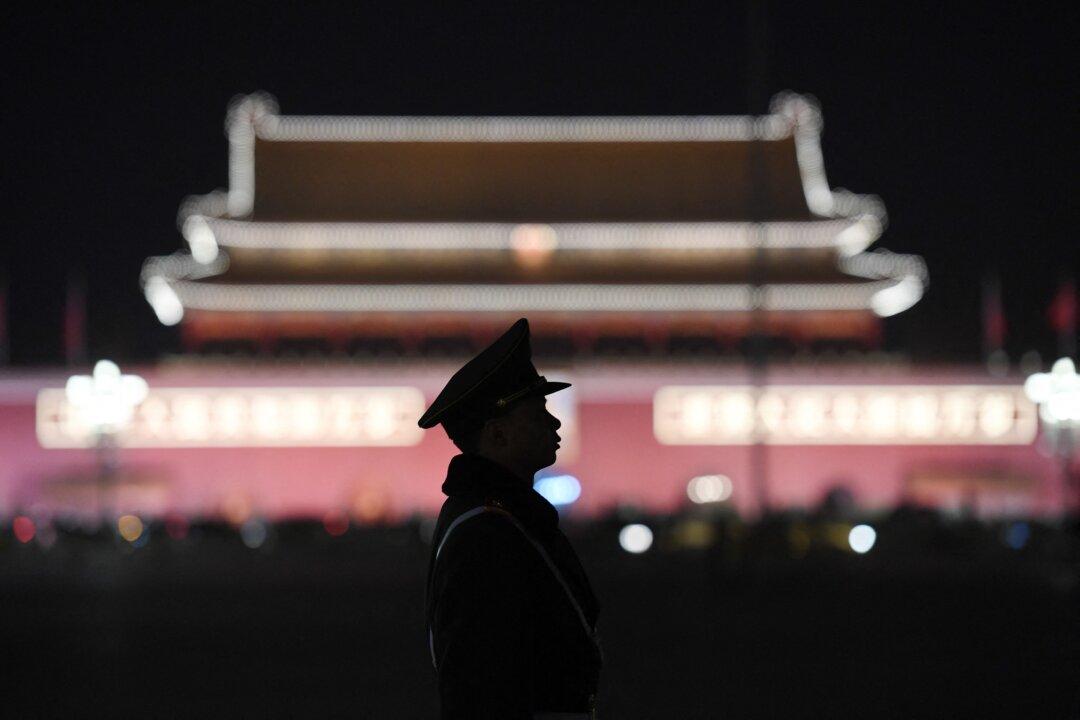Dr. Zang Yunjin, a liver transplant specialist in China, committed suicide in the early hours of Feb. 26, a death that may have been related to his alleged involvement with the mass harvesting of organs from Falun Gong adherents.
Zang, the director of the Institute of Organ Donation and Transplantation of Qingdao University Medical School, and director of the Organ Transplantation Center of Qingdao University Hospital, jumped off a building, according to sources cited in an article published on Feb. 27 by Chinese media Medical Community. He was 57 years old.
According to a report in MedSci, a medical platform in China, Zang was “a distinguished organ transplant expert,” who had “over 2,600 cases of liver transplants.” He was among the top 10 (Chinese doctors) doing liver organ transplants for four consecutive years, and in 2019, he was awarded the title “The Nation’s Distinguished Doctor.”
Zang, a member of the Chinese Communist Party (CCP), was a chief physician, professor, and a returned scholar from the United States, with a long list of titles that included “Taishan Scholar” and “Distinguished Expert,” the report said.
After returning to China in December 2000, Zang established the liver transplant department of Shandong Provincial Qianfoshan Hospital, and later became chief physician of the Organ Transplantation Center of Tianjin First Central Hospital and director of the Shandong Branch of the Orient Organ Transplantation Center.
In January 2005, Zang was transferred to the Liver Transplantation Institute of Beijing Armed Police General Hospital, where he served as deputy director of the institute and director of the hospital’s liver transplant department, as well as professor and chief physician of Beijing Youan Hospital, Capital Medical University Beijing Institute of Hepatology.
In 2014, Zang was appointed as the deputy superintendent of Qingdao University Medical Group, the director of surgery of The Affiliated Hospital of Qingdao University, the director of the university’s Organ Transplant Center, and the director of the Institute of Transplant Medicine, Qingdao University.
Since Zang was one of the CCP’s famous liver transplant experts, with a long list of awards, honors, and titles, why would he commit suicide?

CCP-Sanctioned Forced Organ Harvesting
I believe the main reason that Zang took his own life was because of his alleged involvement in the mass harvesting of organs from Falun Gong adherents. Every hospital in which Zang worked appears in reports from the World Organization to Investigate the Persecution of Falun Gong (WOIPFG).WOIPFG was established in 2003 with a mission “to investigate the criminal conduct of all institutions, organizations, and individuals involved in the persecution of Falun Gong; to bring such investigations, no matter how long it takes, no matter how far and deep we have to search, to full closure; to exercise fundamental principles of humanity; and to restore and uphold justice in society,” as stated on its website.
According to investigative reports published by WOIPFG, from 2004 to 2008, Zang participated in “1,600 cases of liver extractions” at Tianjin First Central Hospital. At the Armed Police General Hospital, Zang completed at least 1,570 liver transplants, while the General Surgery (Liver Transplantation) Center at Beijing Youan Hospital, where Zang worked part-time, had completed 1,001 liver transplants as of Aug. 10, 2017.
Since Zang joined The Affiliated Hospital of Qingdao University, it has “ranked among the top organ transplant centers in China in terms of the number and quality of liver transplants performed during the same period,” according to WOIPFG.
A human being has only one liver; extracting one for transplantation means the “donor” will die.
What is the source of such huge numbers of organs? Numerous investigations have shown that the organs of Falun Gong practitioners were extracted on a large scale.
More ‘Suicide’ Cases Among Transplant Specialists
Several other Chinese organ transplant experts are reported to have committed suicide.On March 24, 2014, Zhang Shilin, 44, deputy director of the Department of Urology at Fudan University Shanghai Cancer Center, jumped from the window of his office on the eighth floor of the hospital.
On Oct. 13, 2013, Jiang Xusheng, 50, a professor of general surgery and the director of liver transplantation at Qilu Hospital of Shandong University, committed suicide by cutting his neck and abdomen in his apartment on the west side of the hospital.
On March 16, 2010, Li Leishi, 84, an internationally renowned kidney specialist, jumped from the 14-story building where he lived in Nanjing. He was the former deputy superintendent of the Nanjing General Hospital of Nanjing Military Command and academician of the Chinese Academy of Engineering.
On May 4, 2007, Li Baochun, 44, a renowned kidney transplant specialist at The Second Military Medical University in Shanghai, jumped to his death from the 12th floor of the hospital’s kidney transplant building.
All four doctors have been listed in WOIPFG’s investigative reports for their purported involvement in the harvesting of organs of Falun Gong practitioners.
Did the doctors actually commit suicide or were they murdered? It is difficult to ascertain.
For example, Li Leishi was categorized as “an anti-revolutionary” during the so-called Cultural Revolution and was brutally persecuted and forced to separate from his wife and children. In an interview, he was asked if he would ever commit suicide. He said, “No, I don’t think I’m an anti-revolutionary. I’m not guilty.”
Independent Probes, Evidence of Organ Harvesting
One of the first whistleblowers who exposed the harvesting of organs from Falun Gong practitioners was a former employee at Sujiatun Hospital in Shenyang city, Liaoning Province. Annie (a pseudonym) made a public statement about the atrocity in March 2006; she now lives in the United States.Since then, human rights lawyers outside China, experts and scholars, WOIPFG, and the China Tribunal of the United Kingdom have conducted numerous independent investigations into the issue, and concluded that large-scale live organ harvesting from Falun Gong practitioners by the CCP has existed for many years and is ongoing.
On Feb. 24, 117 organizations, including the Victims of Communism Memorial Foundation and the International Coalition to End Transplant Abuse in China, co-hosted a seminar on live organ harvesting by the CCP regime. Experts, lawmakers, officials, and representatives from 25 countries, including the United States, the UK, Canada, the European Union, and Australia participated in the event.
Sir Geoffrey Nice QC, a prosecutor at the International Criminal Tribunal for Slobodan Milošević, also chaired China Tribunal, a people’s tribunal into organ harvesting in China.

He said in a speech that his team started “with a blank sheet of paper” before investigating the issue of live organ harvesting by the CCP, “putting on it nothing but evidence.” He said the panel members “had no preconceptions” and that they were not activists nor had they any particular sympathy for the victims.
They just dealt with the evidence presented to them and ended the question “in the form of the judgment.”
“It’s very difficult for anyone to challenge that,” Nice said, and for the two years since the judgment was announced, “it has not been deconstructed or challenged in detail by anyone.”
The China Tribunal held open public hearings on Dec. 8–10, 2018, and April 6–7, 2019. On June 17, 2019, the seven-member panel concluded that it was “beyond doubt” that forced organ harvesting from prisoners had taken place “on a substantial scale by state-supported or approved organizations and individuals,” constituting “crimes against humanity.”
Canadian human rights lawyer David Matas said the large-scale live organ harvesting of Falun Gong adherents is one of the world’s worst crimes against humanity and that it’s more bloody, more atrocious, and more brutal than the Nazi-era Holocaust.
Human rights activists, experts, and lawmakers have called on the international community to unite and take action to hold the CCP regime accountable for its state-sanctioned practice of harvesting organs from living Falun Gong practitioners.
This year marks 22 years since the CCP began persecuting Falun Gong, and 15 years since the revelation of organ harvesting of its adherents. The time has come to settle the score for this atrocity.




